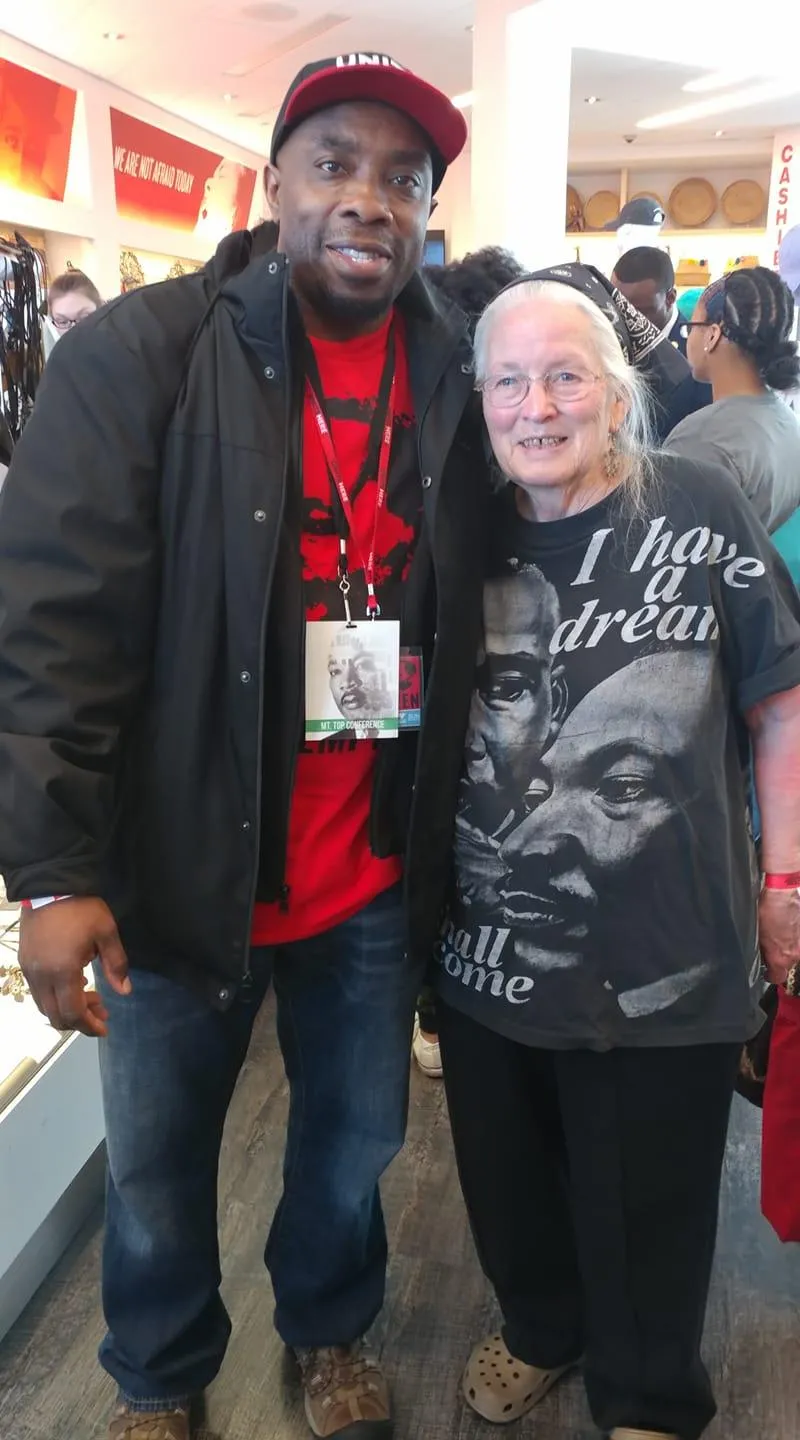Memphis "I AM 2018" Journey Inspires Correctional Officer

AFSCME Local 1565 member Leighton Vanderburgh was among the thousands of people who marched in Memphis, Tennessee, on April 4 to commemorate the 50th anniversary of Dr. Martin Luther King Jr.’s death and the 1968 Memphis sanitation workers’ strike.
“It was quite impactful,” Vanderburgh said. “People from all over the country came together to honor Dr. King and to reflect on the taking of his life. But they also came together because of the fights we have today and the attacks on labor.”
Union members, people of faith, community leaders, civil rights activists and many more retraced Dr. King’s steps from Beale Street to Mason Temple carrying signs and wearing shirts that read “I AM 2018.”
Dr. King walked the 1.5 miles to Mason Temple shortly before his assassination in 1968, when he visited Memphis in support of AFSCME sanitation workers. The workers had walked off the job to demand higher wages, safer working conditions, and the recognition of their union, AFSCME. They carried now-iconic signs that read: “I AM A MAN.”
The April 4 rally proceeded to the Mason Temple and in front of the Lorraine Motel, where Dr. King was shot. The events culminated with the ringing of bells at 6:01 p.m., the exact time the shooter opened fire. The bells rang 39 times, for each year of Dr. King’s life.
“Dr. King fought for civil rights but he also stood with sanitation workers fighting for a livable wage and basic rights on the job,” Vanderburgh reflected. “Their struggle translates to all jobs and to all walks of life.”
Vanderburgh, a Correctional Maintenance Officer and member of the union’s Executive Board, journeyed to Memphis on a bus from New Haven that was sponsored by the local UNITE-HERE labor union.
“I’m proud of Leighton for participating in the event,” said Local 1565 President Mike Tuthill. “It was a true freedom ride on a bus that traveled 14 hours to a place and a time that’s a symbol of the fight for labor rights and equal treatment for everybody.”
In his final speech, Dr. King addressed AFSCME sanitation workers who had walked off the job with a demand for dignity and respect. When two of their co-workers, Robert Walker and Echol Cole, lost their lives to a malfunctioning truck, 1,300 sanitation workers in Memphis went on strike, asking for higher wages and safer working conditions.
Picking up this theme, Vanderburgh connected the sanitation workers’ plight and the advocacy of Dr. King to today’s relentless assaults on organized labor – like the Janus v. AFSCME case before the Supreme Court – led by extremist corporate and wealthy special interests.
“As correctional employees, we walk the toughest beat around, but we’re under constant attack today,” he observed. “That’s why we’ve got to stand together to protect the gains we’ve made. We’ve got to recognize that an attack on one is an attack on all.”
